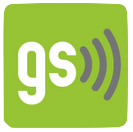People
Lab Members
Dr. Steve Liang (梁鴻翎) is a researcher, teacher and entrepreneur. Dr. Liang is currently a professor at the University of Calgary and director of the GeoSensorWeb Laboratory. Steve’s goal is to build a world-wide sensor web, make its information accessible and useful and to empower anyone to build connected applications by using the information generated from the world around them for positive impact at a global scale. For example, Steve is the editor of the Open Geospatial Consortium SensorThings API and the result of the standard work is to provide a uniform way to expose the full potential of the Internet of Things.
Steve has been an invited speaker at universities and industries around the world. In 2013, Steve was chosen one of Calgary’s Top 40 Under 40 by the Avenue Magazine. Steve held the AITF-Microsoft Industry Research Chair on the Open Sensor Web from 2011 to 2014.
Positions and Publications
- Professor at the Geomatics Engineering Department, Schulich School of Engineering, University of Calgary
- Founder and CTO, SensorUp Inc.
- Rogers IoT Research Chair, Research Chair
- Chair of WG2, ITU-T FG on Data Processing and Management for IoT and Smart Communities
- Chair of OGC SensorThings API Standard Working Group
- Publications (Google Scholar)
Sara’s Publications
- Context-Aware Personal Navigation Services Using Multi-level Sensor Fusion Algorithms, Sara Saeedi, (PhD thesis), September 2013, UCGE 20390
- Publications (Google Scholar)
New technologies have allowed us to conduct research at larger and larger scales, but our ability to manage such scales becomes more complex and difficult. By re-using some of the lessons learned by major technology companies like Facebook, Yahoo!, Etsy, and Bloomberg, we can take configuration management from cloud tech and apply it to sensor device tech. By managing our devices with a centralized tool, we can set up devices with less work.
Other web tech can be used to simulate and test geo-sensor networks, allowing us to design and build more robust networks that can respond to changing network and environmental conditions.
I am a GIScientist with an engineering background and experience in GIS development. I am experienced in Geospatial software development to facilitate mobile mapping, 2D/3D data visualization, network analysis, and spatial data management. To keep the connection with industry, I have led the software development team of the Geomatics Department of K.N.Toosi in several industrial MobileGIS projects. My research in Master was focused on how to improve the quality of Location Aware Recommender Systems using high quality Volunteered Geographic Information (VGI) as well as automation of VGI quality assessment. My background in VGI and the Internet of Things(IoT) led me to study on Location-Based Social Network (LBSN) and IoT integration network models. Having added to GSWL, I broadened my technical knowledge to employ IoT and Artificial Intelligence (AI) to develop real-time GIServices.
I am always passionate to develop IoT/GIServices and leverage cutting edge technologies such as AI to solve real-world spatial problems.
Sepehr’s Publications
Software developer, architect, and integrator with project management, consulting, and technical management experience. Manages software development at the GeoSensorWeb Lab. Specializing in web applications, APIs, sensor data processing and geomatics visualization tools in the cloud (SensorUp Explorer on AWS). Handles DevOps to AWS using Terraform and utilities in Node and Bash.
Previous Members and Students
Post Doctoral Fellows
-
Dr. Haiyu Lan (In Progress), University of Calgary. Project Title: UAV and IoT.
-
Dr. Sara Saeedi (2015-2018), University of Calgary. Project Title: Interoperable OGC CDB standards. Present Position: Assistant Director, GSW Lab.
-
Dr. Mohamed Bakillah, University of Calgary. Project Title: Semantic issues for the Internet of Things. Present Position: Director, UAE GIS Centre.
-
Dr. Yong Bian, University of Calgary. Project Title: Watermarking techniques for the Internet of Things. Present Position: Senior Research Fellow at Harvard University.
PhD Graduates
-
Dr. Tania Khalafbeigi (graduated in 2019), University of Calgary. Thesis Title: Internet of Things Data Streaming Architecture. Present Position: Software Developer, SensorUp Inc.
-
Dr. Chih-Yuan Huang (graduated in 2014), University of Calgary. Thesis Title: GeoPubSubHub: A Geospatial Publish/Subscribe Architecture for the World-Wide Sensor Web. Present Position: Assistant Professor, NCU.
Master Graduates
-
Soroush Ojagh, University of Calgary. Thesis Title: Spatiotemporal IoT Data Analysis and Prediction using OGC Open Standards in Digital Contact Tracing and Air Quality Prediction Applications.
-
Xiaohong Shang (graduated in 2016), University of Calgary. Thesis Title: A Study on Efficient Vector Mapping with Vector Tiles Based on Cloud Server Architecture.
-
Tsai Hang-Fang (graduated in 2015), University of Calgary. Thesis Title: An Efficient Web Mapping Solution for Polar Regions.
-
Mohammad Ali Jazayeri (graduated in 2014) University of Calgary. Thesis Title: Implementation and Evaluation of Interoperable OpenStandards for the Internet of Things.
-
Ren-Yu Li, University of Calgary. Thesis Title: A Study of Volunteered Geographic Information and Social Media.
-
Andrew Phillips (co-supervised, graduated in 2014), University of Calgary. Thesis Title: Integrated Sensing of Soil Moisture at the Field-Scale: Measuring, Modeling and Sharing For Improved Agricultural Decision Support.
-
Mohammad Alohali (graduated in 2015), University of Calgary. Project Title: Internet of Things (non-thesis-based master degree).
Research Associates
-
James Badger (2009-2017), University of Calgary. Project Title: GeoCENS Data Management System
-
David Chang, University of Calgary. Project Title: Cyber-infrastructure for Geospatial Information Systems. Present Position: Software Developer, SensorUp Inc.
